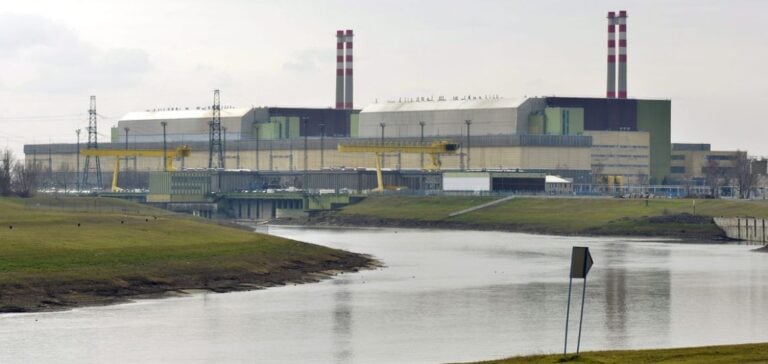The Hungarian government has announced a temporary adjustment to the environmental regulations for the Paks nuclear power plant.
This change allows the plant to continue operating even when the water temperature of the Danube exceeds the imposed limits.
This decision is aimed at ensuring the country’s energy supply security in the face of growing climate challenges.
Background and rationale
The Paks nuclear power plant uses water from the Danube to cool its four reactors.
Currently, regulations stipulate that the water must not exceed 30 degrees Celsius.
If this temperature is reached, the plant must reduce production until the temperature drops again.
However, heat waves and low water levels are becoming increasingly frequent due to climate change, making this limit more difficult to comply with.
Hungary relies heavily on the Paks power plant for its electricity production.
Any prolonged interruption can have a significant impact on the stability of the national power grid.
The Ministry of Energy points out that maintaining the current limit could compromise energy security and jeopardize consumer supplies.
The New Regulation
The Ministry of Energy is proposing to maintain the temperature limit at 30 degrees Celsius, but to authorize occasional exceptions.
These exceptions will require the approval of the Minister of Energy, and will be granted only when essential to ensure security of supply.
This approach reconciles environmental imperatives with the country’s energy needs.
Each decision to exceed the temperature limit will take into account potential environmental impacts.
Mitigation measures will be put in place to minimize the effects on the Danube ecosystem.
This flexibility is essential to meet the challenges posed by climate variations and ensure a stable energy supply.
Future prospects
The Paks plant comprises four Russian-built VVER 440 reactors with a total capacity of 2,000 megawatts.
These reactors, which have been in operation since the 1980s, are due to be retired between 2032 and 2037.
In addition, Hungary plans to expand the plant with the construction of two new VVER reactors of 1.2 gigawatts each, in collaboration with Rosatom, the Russian atomic energy agency.
The plant’s expansion is crucial to Hungary’s energy strategy.
It aims to diversify energy sources and reduce dependence on fossil fuels.
The government is committed to complying with safety standards and environmental regulations, while guaranteeing a reliable energy supply.
This extension, combined with current regulatory adjustments, demonstrates Hungary’s commitment to securing its energy supply while adapting to climate challenges.
The Paks power plant remains central to this strategy, ensuring stable and sustainable power generation.
The balance between energy needs and environmental protection is at the heart of these new regulations.
By authorizing occasional overruns of the Danube’s water temperature, Hungary is taking a pragmatic step to ensure the continuity of its energy supply, while closely monitoring environmental impacts.






















